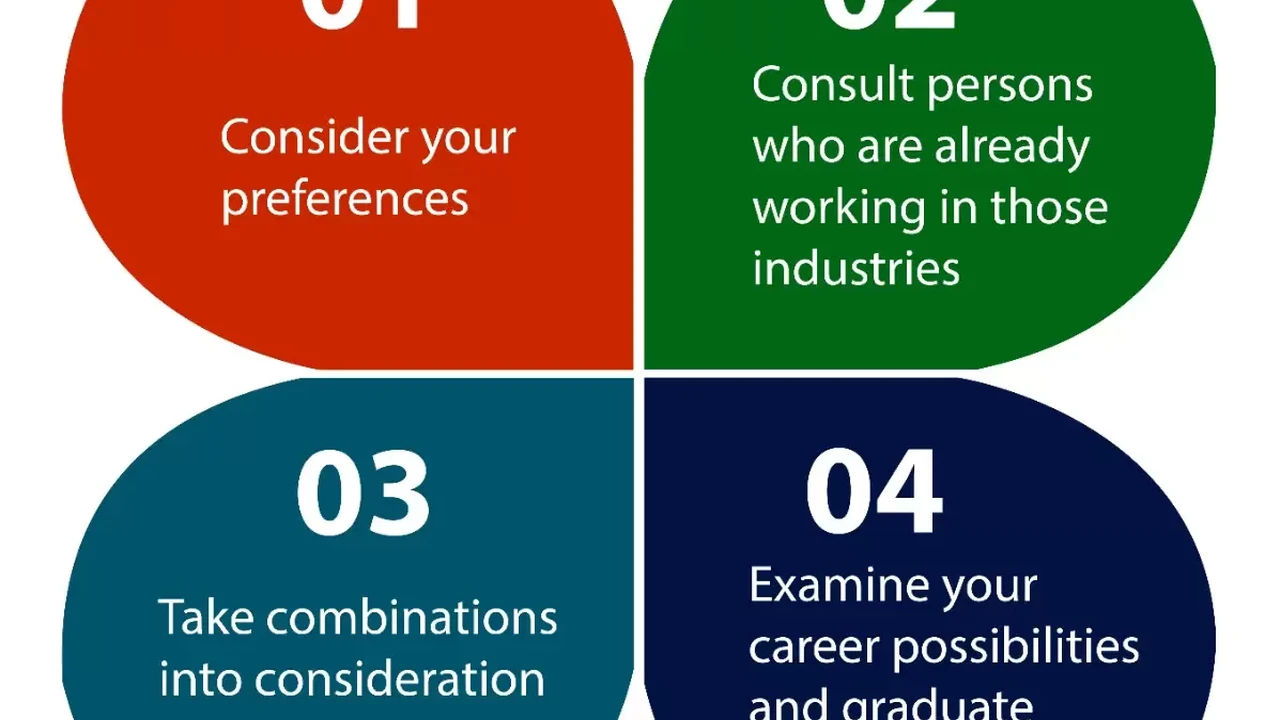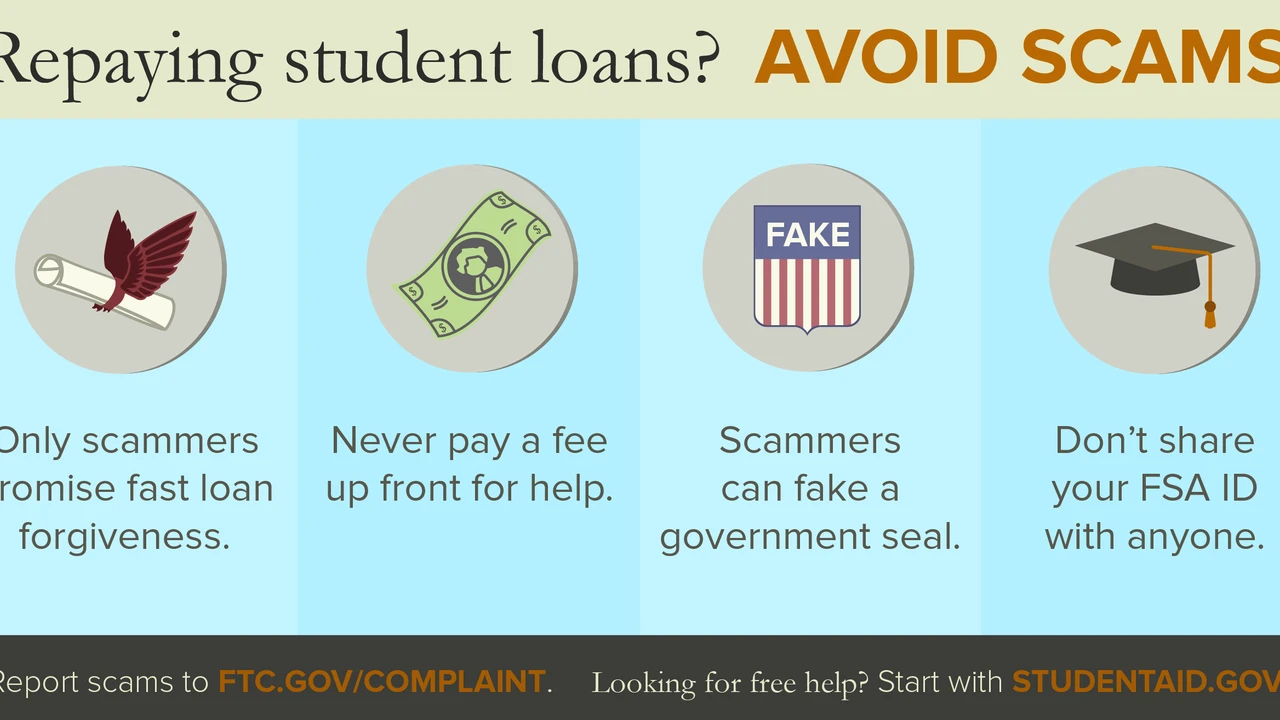Guide to Choosing the Right Major for Your Career Goals
Make informed decisions with our guide to choosing the right major for your career goals. Align your studies with your future aspirations.

Guide to Choosing the Right Major for Your Career Goals
Understanding Your Interests and Passions for Academic Success
Choosing a college major is one of the most significant decisions you'll make as a student. It's not just about picking a field of study; it's about laying the groundwork for your future career, personal growth, and overall life satisfaction. The first crucial step in this journey is to deeply understand your own interests and passions. What subjects genuinely excite you? What topics do you find yourself researching or discussing even when you don't have to? Reflect on your high school experiences, extracurricular activities, and even your hobbies. Did you love dissecting novels in English class, or were you more drawn to solving complex equations in math? Perhaps you enjoyed building things in shop class, or organizing events for a club. These seemingly small preferences can offer significant clues about your innate talents and what truly motivates you.
Consider what problems you enjoy solving. Are you fascinated by social issues, technological advancements, environmental challenges, or artistic expression? Your natural curiosity and the types of challenges you gravitate towards can point you towards a major that aligns with your intrinsic motivations. For instance, if you're passionate about understanding human behavior and societal structures, sociology or psychology might be a good fit. If you're driven by innovation and problem-solving through technology, engineering or computer science could be your path. Don't just think about what you're good at, but also what you genuinely enjoy doing. A major that aligns with your passions will make your academic journey more engaging and sustainable, leading to better performance and a more fulfilling career.
Exploring Career Paths and Industry Trends for Future Opportunities
Once you have a clearer picture of your interests, the next step is to connect those interests to potential career paths and understand current industry trends. Researching various professions can help you see how different majors translate into real-world jobs. Websites like the U.S. Bureau of Labor Statistics (BLS) Occupational Outlook Handbook, LinkedIn, and Glassdoor are excellent resources for exploring job descriptions, typical duties, required education, salary expectations, and job outlooks for thousands of occupations. Don't limit yourself to the most obvious career paths associated with a major. For example, an English major isn't just for teaching; it can lead to careers in marketing, technical writing, law, or publishing.
Pay attention to industry trends. Are certain sectors experiencing rapid growth, or are others declining? Understanding these trends can help you choose a major that prepares you for a field with strong future demand. For instance, fields related to artificial intelligence, data science, cybersecurity, renewable energy, and healthcare are currently experiencing significant growth. While it's impossible to predict the future perfectly, being aware of these trends can give you a strategic advantage. Consider informational interviews with professionals in fields that interest you. Ask them about their daily tasks, the skills they use, their career trajectory, and what they wish they had known when they were choosing their major. This firsthand insight can be invaluable.
Assessing Your Skills and Strengths for Major Selection
Beyond interests and career paths, it's crucial to assess your existing skills and strengths. What are you naturally good at? Are you a strong communicator, a meticulous researcher, a creative thinker, a natural leader, or a skilled problem-solver? Think about your academic performance in different subjects. Did you excel in subjects that required analytical thinking, or those that demanded creativity and expression? Your strengths can often indicate areas where you are likely to succeed and enjoy your studies.
For example, if you have strong analytical and quantitative skills, majors like finance, economics, statistics, or engineering might be a good fit. If you possess excellent communication and interpersonal skills, consider majors such as communications, public relations, human resources, or education. If you're highly organized and detail-oriented, project management or accounting could be appealing. Don't forget about soft skills like critical thinking, adaptability, and teamwork, which are highly valued in almost every profession. While you will develop new skills in college, building on your existing strengths can make your academic journey more manageable and rewarding. Taking aptitude tests or career assessments can also provide objective insights into your strengths and potential career matches.
Considering Academic Requirements and Coursework for Your Chosen Field
Once you've narrowed down your options based on interests, career paths, and skills, it's time to delve into the practicalities: the academic requirements and coursework for each potential major. Every major has a specific curriculum, including core courses, electives, and prerequisites. Research the course catalog for universities you're considering. Do the required courses sound interesting and challenging in a good way? Are there specific courses that seem particularly daunting or unappealing?
For instance, a computer science major will involve extensive programming and mathematics, while a history major will require significant reading, research, and writing. Some majors might have lab components, field work, or internship requirements. Understanding the day-to-day academic demands of a major is crucial. Talk to current students or professors in those departments to get a realistic sense of the workload and the learning environment. Consider the difficulty level and your comfort with the subject matter. While it's good to challenge yourself, choosing a major that is consistently overwhelming or uninteresting can lead to burnout and dissatisfaction. Ensure that the academic rigor and content align with your learning style and preferences.
Exploring Double Majors and Minors for Enhanced Versatility
Sometimes, a single major might not fully capture all your interests or career aspirations. In such cases, exploring the possibility of a double major or adding a minor can significantly enhance your versatility and marketability. A double major allows you to pursue two distinct fields of study, earning a degree in both. This can be particularly beneficial if your interests span across different disciplines, or if you want to combine a passion with a more practical career-oriented field. For example, a double major in business and environmental science could prepare you for a career in sustainable business practices.
A minor, on the other hand, is a secondary field of study that requires fewer credits than a major. Minors can complement your primary major, provide a specialized skill set, or simply allow you to explore an area of personal interest without the full commitment of a second major. For instance, an engineering major might minor in a foreign language to prepare for international work, or a psychology major might minor in statistics to strengthen their research skills. Before committing to a double major or minor, carefully review the academic requirements and ensure it's feasible within your desired graduation timeline. Consult with academic advisors to plan your coursework effectively and understand the implications for your overall academic load.
Leveraging Internships and Experiential Learning for Real World Insight
While academic coursework provides foundational knowledge, internships and other forms of experiential learning offer invaluable real-world insight into potential career paths. These experiences allow you to apply classroom knowledge in a professional setting, develop practical skills, and build your professional network. Many universities have career services departments that can help you find internships, co-ops, and volunteer opportunities related to various majors and industries.
Even if you're unsure about your major, an internship can help you test the waters. For example, if you're torn between marketing and journalism, an internship at a marketing firm and then a local newspaper can give you a firsthand look at the day-to-day realities of each field. These experiences can either confirm your interest in a particular major and career path or help you realize it's not the right fit, saving you time and effort in the long run. Beyond formal internships, consider part-time jobs, volunteer work, research assistant positions, or even student organization leadership roles that align with your interests. These experiences not only enhance your resume but also provide clarity on your career aspirations.
Seeking Guidance from Academic Advisors and Career Counselors
You don't have to navigate the major selection process alone. Academic advisors and career counselors are invaluable resources designed to help students make informed decisions. Academic advisors can provide detailed information about specific majors, including course requirements, prerequisites, and potential academic challenges. They can help you plan your course schedule to ensure you meet all graduation requirements and explore options like double majors or minors.
Career counselors, on the other hand, specialize in helping students connect their interests, skills, and values to potential career paths. They can administer career assessments, provide insights into various industries, help you prepare for informational interviews, and guide you through the internship search process. Many universities also offer workshops on career exploration, resume writing, and interview skills. Don't hesitate to schedule regular meetings with these professionals. Their expertise and objective perspective can provide clarity and confidence as you make one of the most important decisions of your academic life.
Understanding the Flexibility of a College Degree Beyond the Major
It's important to remember that while choosing a major is significant, it doesn't entirely define your future. A college degree, regardless of the specific major, equips you with a broad range of transferable skills that are highly valued by employers across various industries. These include critical thinking, problem-solving, communication, research, analytical reasoning, and adaptability. Many successful professionals end up working in fields completely unrelated to their college major.
For example, a philosophy major might become a successful business consultant, or a history major might excel in data analysis. The skills you gain from a rigorous academic program, combined with your extracurricular activities, internships, and personal experiences, often matter more than the specific title of your degree. This understanding can alleviate some of the pressure associated with choosing the 'perfect' major. Focus on choosing a field that genuinely interests you and where you feel you can thrive, knowing that your college education is a foundation for lifelong learning and diverse career opportunities. The goal is to develop a strong skill set and a curious mind, which will serve you well no matter where your career path leads.
Specific Product Recommendations for Career Exploration and Skill Development
Online Career Assessment Tools for Self Discovery
To help students better understand their interests, strengths, and potential career matches, several online career assessment tools are highly recommended. These tools often use psychometric tests to provide personalized insights. Here are a few popular and effective options:
- Strong Interest Inventory: This is one of the most widely used career assessment tools. It compares your interests to those of people successfully employed in a wide range of occupations. It helps identify potential career paths that align with your preferences. While often administered by career counselors, some universities offer access. Typical Cost: Varies, often included in university career services or around $50-$100 for individual access through certified practitioners.
- Myers-Briggs Type Indicator (MBTI): While not strictly a career assessment, the MBTI helps you understand your personality preferences (e.g., introversion/extraversion, sensing/intuition, thinking/feeling, judging/perceiving). Understanding your type can provide insights into work environments and roles where you might thrive. Typical Cost: Varies, often part of university workshops or around $50-$150 for individual assessments with interpretation.
- Holland Code (RIASEC): Based on John Holland's theory, this assessment categorizes individuals and occupations into six types: Realistic, Investigative, Artistic, Social, Enterprising, and Conventional. Matching your type to occupational types can suggest suitable careers. Many free versions are available online, such as those from O*NET. Typical Cost: Free for basic versions, more detailed reports might cost up to $30.
- StrengthsFinder (CliftonStrengths): This assessment identifies your top 5 natural talents (themes). Understanding your unique strengths can help you choose a major and career where you can leverage your innate abilities. Typical Cost: Around $20-$50 for the basic assessment and report.
Online Learning Platforms for Skill Exploration and Development
Before committing to a major, you might want to explore specific subjects or develop foundational skills. Online learning platforms offer a flexible and often affordable way to do this. They allow you to take courses, earn certifications, and even complete specializations in various fields.
- Coursera: Partners with universities and companies to offer courses, specializations, and degrees. You can audit many courses for free or pay for a certificate. Excellent for exploring subjects like data science, programming, business, and humanities. Typical Cost: Free to audit many courses, certificates typically $39-$79 per month for specializations, or one-time payments for individual courses.
- edX: Similar to Coursera, edX offers university-level courses from top institutions worldwide. It's great for exploring STEM fields, but also offers courses in arts, humanities, and social sciences. Typical Cost: Free to audit many courses, verified certificates typically $50-$300 per course.
- Udemy: Offers a vast library of courses taught by independent instructors. You can find courses on almost any topic, from web development to creative writing to marketing. Great for practical skills and exploring niche interests. Typical Cost: Courses range from $10-$200, often with significant discounts.
- LinkedIn Learning: Focuses on business, technology, and creative skills. It offers video courses taught by industry experts and is particularly strong for professional development. Many universities provide free access to students. Typical Cost: Free with many university subscriptions, otherwise around $29.99 per month or $19.99 per month with an annual plan.
Professional Networking Platforms for Industry Insights
Connecting with professionals in fields that interest you is crucial for gaining real-world insights. These platforms facilitate informational interviews and mentorship opportunities.
- LinkedIn: The premier professional networking site. You can research companies, connect with alumni from your university, and find professionals in various roles. Use it to send polite requests for informational interviews. Typical Cost: Free for basic use, Premium subscriptions offer more features (e.g., InMail credits) for around $29.99 per month.
- Alumni Networks (University Specific): Many universities have dedicated alumni networking platforms or strong alumni groups on LinkedIn. These are excellent resources for connecting with graduates who have pursued various career paths. Typical Cost: Free for university alumni and current students.
- Professional Associations: Organizations like the American Marketing Association, Institute of Electrical and Electronics Engineers (IEEE), or American Psychological Association often have student memberships and offer networking events, conferences, and mentorship programs. Typical Cost: Student memberships typically range from $20-$100 annually.
By combining self-reflection, thorough research, practical experience, and expert guidance, you can confidently choose a major that not only aligns with your career goals but also sets you up for a fulfilling and successful future.
:max_bytes(150000):strip_icc()/277019-baked-pork-chops-with-cream-of-mushroom-soup-DDMFS-beauty-4x3-BG-7505-5762b731cf30447d9cbbbbbf387beafa.jpg)






